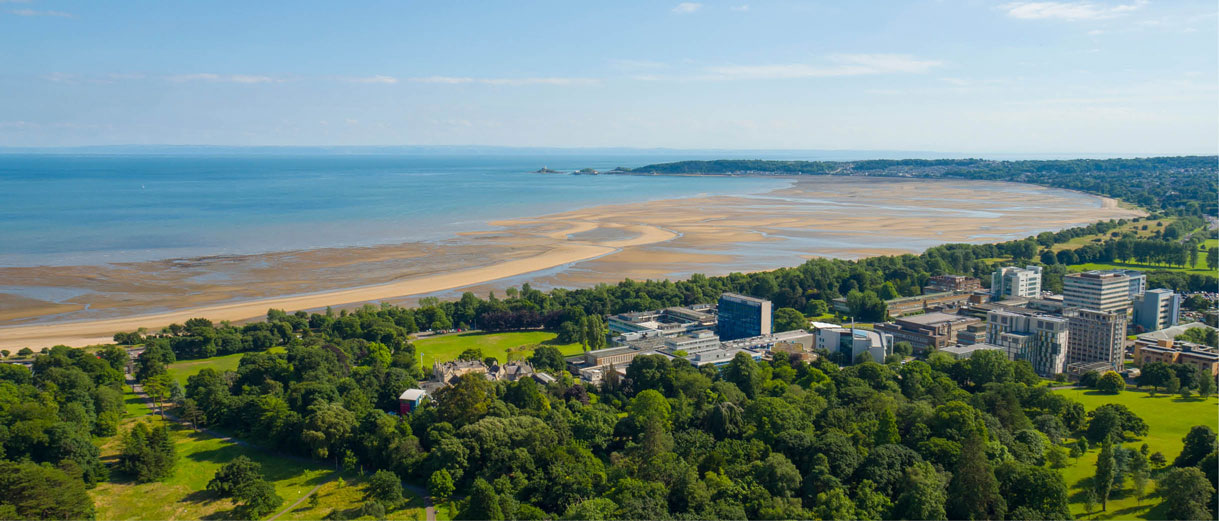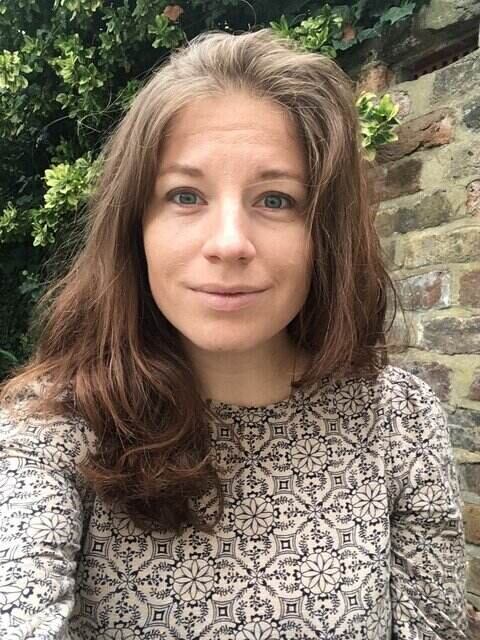-
EN-112
Approaches to Gender in English Literature
From the earliest myths of creation to the modern literary canon, masculinity has long been entwined with the act of authorship. Think of the Biblical story of Genesis: Adam is made first, Eve fashioned from his rib ¿ a story that has echoed through centuries of cultural narratives, shaping perceptions of creativity and authority. But literature is also a space of resistance, where writers challenge the structures that have defined who gets to speak and be heard.
This module dives into the voices that disrupt, reshape and reclaim literary authorship. We¿ll explore how both male and female writers have resisted the masculinisation of literary tradition and carved out a space for female, queer and alternative masculinities within their work. We will study a series of texts written across centuries, each offering a unique perspective on gender, power and writing.
Along the way, you will engage with groundbreaking debates in gender theory, encountering key thinkers such as Virginia Woolf, Simone de Beauvoir and Judith Butler. Through reading, discussion and independent analysis, you¿ll develop your own interpretations of the set texts, uncovering how literature both reflects and challenges the structures of gendered authorship .
-
EN-120
English Essentials
This is a skills-based module which will equip students with the technical and critical expertise that is necessary for their academic journey in English Literature and Creative Writing. It is designed to support the transition from post-16 study to undergraduate study and to show students *how* to become successful scholars of English. How should we read texts? How do we write essays? Focusing on an exciting anthology of texts selected by the English academics at Swansea, this team-taught module uncovers the power of written language. We will explore how writers inspire and challenge their readers, how to think critically, how to close-read, how to construct powerful arguments and how to produce written work that is rigorous, academic and convincing. This module empowers students to think, write, and persuade.
-
EN-241
Fragments of Union: The Cultural Making and Breaking of Britain
The nationality question has been a persistent theme in British politics, most obviously in recent decades in relationship to questions of immigration and settlement, Britain¿s membership of Europe, the `troubles¿ and `peace process¿ in Ulster, and the resurgence of forms of devolution and nationalism in Wales and Scotland. This course explores the ways in which the diverse literatures of the British Isles have responded to, and shaped, debates around these issues. The questions asked on the course will include: How does a `four nations¿ approach, well-established in historical studies, function in literary studies? What are the key differences and similarities between the literatures produced in England, Ireland, Scotland and Wales? To what extent does literature reflect social identities, and to what extent is it active in their creation? If all identities are in as sense `imagined¿, why have certain kinds of identities been significant in particular periods? Is an aesthetics informed by nationalism inevitably conservative and restrictive? Are linguistically experimental writers always skeptical of collective identities? Are we witnessing the `break up¿ of Britain in contemporary literature, or is Britishness being reconstructed anew?
-
EN-242
Contentious Shakespeare
Shakespeare is often figured as a universal writer who tells us something essential about the human condition; he has been imagined both as a national poet and as the world¿s dramatist. But can Shakespeare really be universal? This module invites students to rethink many of the standard assumptions about Shakespeare. The writer Ben Jonson described as the `sweet swan of Avon¿ was also responsible for plays of horrifying violence and his drama reflects, in unsettling ways, on issues of gender, race, and class. Students will explore contentious questions of race, gender, sexuality and class in five of Shakespeare¿s plays across a range of genres (comedy, tragedy, history and tragicomedy/ romance). Lectures and seminars introduce the plays in their disturbing complexity: Shakespeare emerges as a deeply equivocal presence in literary and theatrical history. Taking into account the important work of feminist and postcolonial criticism, this module addresses both the radical potential and the frequently conservative application of Shakespeare¿s plays.
Indicative texts (may change from year to year):
Twelfth Night
A Midsummer Night¿s Dream
The Winter¿s Tale
Titus Andronicus
Henry IV pt 1
-
EN-3031
Dissertation - English Literature
The Dissertation is an optional, two-semester, 40-credit module designed to develop high-level academic skills and intellectual independence in the students. A first-semester skills-building programme will include: research skills, summary skills, bibliographic skills, ability to synthesise succinctly, planning and organisational skills, correct presentation of a thesis and bibliography, presentational skills and public speaking. Students conduct research on a subject of their choice, devised in consultation with a member of the English literature staff. The topic will be devised to fall within staff research and teaching specialisms, broadly defined. Students attend group sessions on research skills in Semesters 1 and 2, and have individual meetings with supervisors in Semester 2.
-
EN-3058
Beyond Shakespeare
Shakespeare is now the best known, most read, and most performed dramatist of the seventeenth century but he was not necessarily the best known, most read, or most performed playwright of his time. This module looks beyond Shakespeare at five important plays written by his contemporaries, Ben Jonson, Francis Beaumont, John Webster, Thomas Middleton, Thomas Dekker, and John Ford. The plays analysed on this module all enter into some form of dialogue with Shakespeare's plays. Some of them, for example, were written for the King's Men, the company Shakespeare helped found; while some were written for rival companies and some explicitly respond to, and seek to reshape, Shakespeare's work. Daring to broach subjects that Shakespeare was less willing to touch, the plays also offer distinct challenges and opportunities. A Ben Jonson play, for example, simply doesn't work in the same way as a Shakespeare play. This module will introduce students to some of the most inventive and outrageous plays of the early modern stage. Students will learn how best to approach the unique challenges posed by the theatre of Shakespeare's contemporaries, focusing in particular on their status as theatrical scripts. The module introduces students to the repertory system of early modern England and its different playing spaces and theatrical cultures. It will also invite students to consider the life the plays have on the stage today, drawing on the evidence of twenty-first century performances.
-
EN-M31
Dissertation
Individual project devised and defined in discussion between supervisor and student.
-
EN-M41
Research Practice in English / Contemporary Writing / Welsh Writing in English
Supervised project on research methodology in practice. Students build a detailed bibliographical plan for their MA dissertation project.
-
EN-M80
Practising Ideas: Advanced Research Skills in English / Contemporary Writing / Welsh Writing in English
This module is designed to introduce you to key practical and conceptual tools necessary for scholarship at Master¿s level and beyond. The aim is for you to gain the competencies and confidence to complete and enjoy the degree. In a seminar and occasional workshop format, you will practise a range of core professional research skills. You will be encouraged to reflect on your own learning and academic development to become a more independent and self-directed lifelong learner. You will produce a Portfolio of assessed work. These activities will support your work in other MA modules, particularly EN-M41 Research Practice and your EN-M31 Dissertation, while also equipping you with a set of transferable skills that are highly valued by many employers.
-
EN-M89
Publishing: Cultures and Contexts
This team-taught module introduces students to different cultures and contexts of the publishing industry and its history. Students will gain both practical and intellectual skills across a range of topics taught by staff from English Literature and Creative Writing. The module begins with focused seminars on book history and print culture, and then moves on to workshops in which students will gain a familiarity with industry terminology and the mechanisms of the book trade. Students will be able to choose from different methods of assessment that develop academic or industry-focused skills.
-
VC-100
Materiality and Meaning in the Visual Arts
This module introduces some of the wide variety of materials and techniques that can be studied as visual culture, including painting, architecture, photography, animation and printing. We will explore striking examples, experiment with different techniques and practices, and discuss how meaning is encoded in visual artefacts of various kinds. This module will also help you develop some of the key research and communication skills that you will need for degree-level study.
-
VC-101
Introduction to Visual Culture
Now, more than ever, our world is saturated with images. We create, distribute, and consume images at an unprecedented scale and pace. This module introduces students to the discipline of Visual Culture and equips them with empowering skills of visual interpretation and contextualisation. We begin by thinking about what an image is and what role representations play in our understanding of ourselves and others. You will study a wide range of material including painting, prints, photography, film, video games, social media and architecture. In doing so you will consider how the discipline of Visual Culture connects with the related fields of Film Studies and Art History. Throughout, we question the relationship between looking, knowing, and dynamics of power.
-
VC-200
Techniques of Seeing
This module develops and extends ideas encountered in the first-year module, Introduction to Visual Culture by providing historical contextualization of early screen culture. We consider a range of visual devices and entertainment formats and examine different conditions of visuality, their meanings and cultural functions. We will think about nineteenth-century complexities of visuality, image-making, and viewing in relation to twentieth-century and twenty-first century screen practices.


